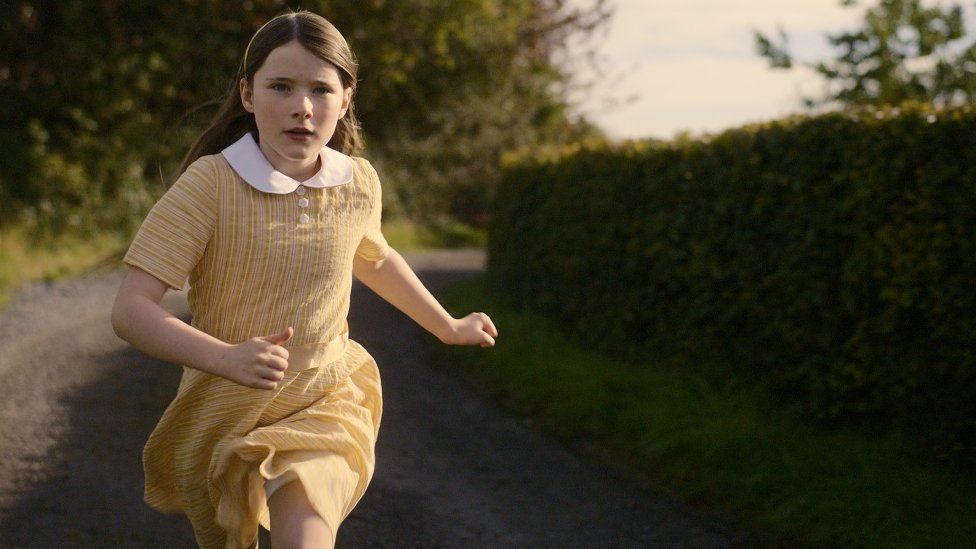
Irish language cinema is having "a breakthrough moment" after An Cailín Ciúin (The Quiet Girl) became the highest-grossing Irish language film of all time.
That is according to executive producer for the film, Máire Ní Chonláin.
The film recently surpassed UK and Ireland box office records and has been submitted as Ireland's entry for Best International Feature at the 2023 Academy Awards.
Directed and written by Colm Bairéad, the film is based on Claire Keegan's 2010 novella, Foster.
"It has universal themes, it's a simple story about how you can grow up to be happy as a person," Ní Chonláin told BBC News NI.
Ní Chonláin said there was great difficulty in casting the lead role.
Producers actively searched Gaeltacht areas and approached Irish language schools before being introduced to Catherine Clinch.
The film is set in 1981 and follows nine-year-old Cáit, who is withdrawn and neglected, as she is sent to live with her distant relatives in County Waterford and finally finds herself in a loving home for the first time.
It has won over critics at numerous festivals after premiering at Berlinale (Berlin International Film Festival), and had the largest Irish-language box office opening to date, eventually grossing more than €1m.
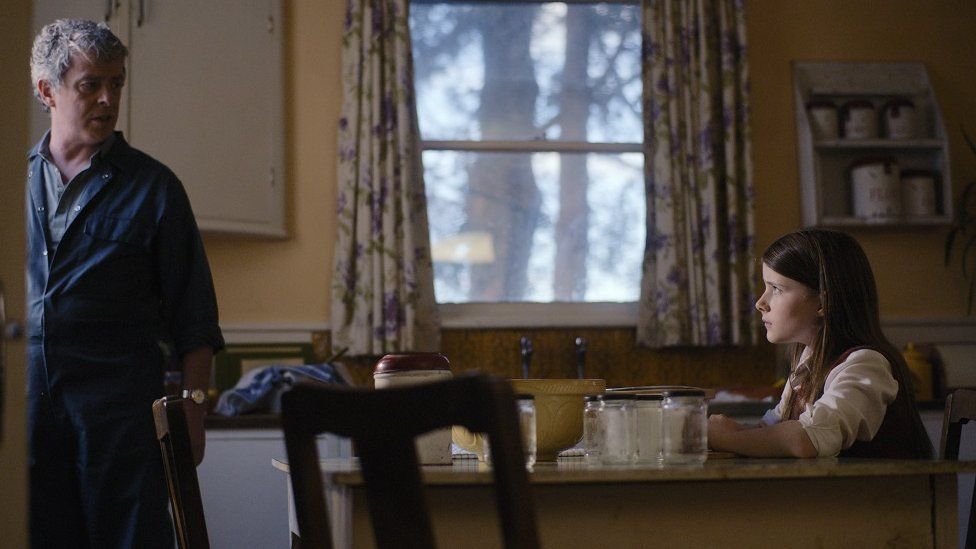
An Cailín Ciúin was produced for Cine4, a film initiative between Screen Ireland, Irish-language broadcaster TG4 and the Broadcasting Authority of Ireland.
The initiative is open to applications for live-action feature-length drama film projects with budgets of up to €1.2m (£1m).
Five applications annually are offered development budgets of up to €25,000. Two of these films are then selected for full production, receiving a festival and theatrical release prior to being broadcast on TG4.
"It's so important that the Irish language is being developed for films and television - we're trying to grow the independent sector," says Ní Chonláin.
"We want to normalise the language. You'd have often seen a French film before an Irish language film."
Ní Chonláin has worked as commissioning editor with TG4 for more than 20 years and says Irish productions are currently gaining momentum through word-of-mouth.
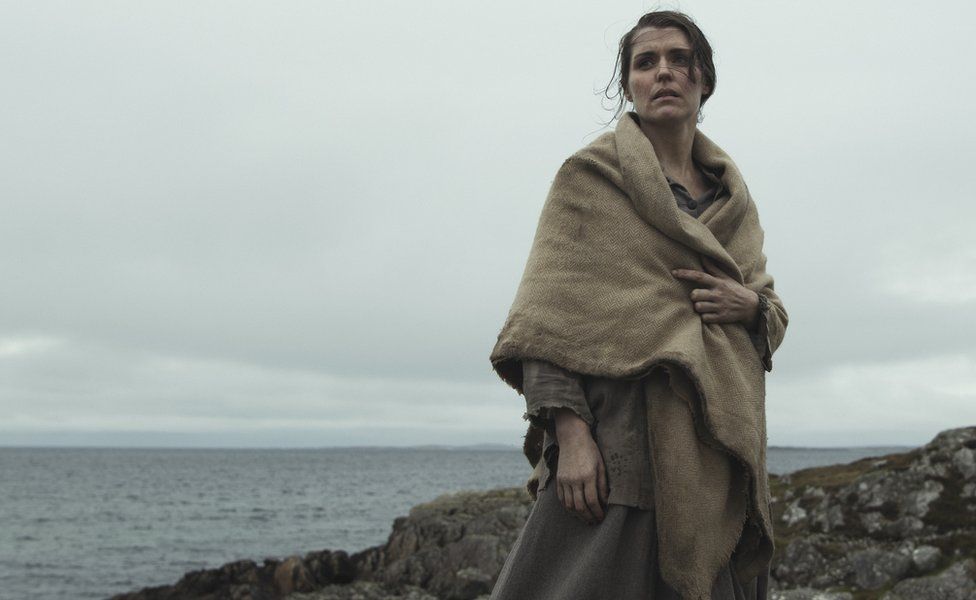
Cine4 has financially backed several other productions - notably 2019's Arracht, which was set during the Great Famine of Ireland and was selected as Ireland's entry for the 93rd Academy Awards.
Arracht went on to win the prestigious Audience Award at 2020's Glasgow Film Festival, as well as further honours in America, Luxembourg, Greece and Ireland.
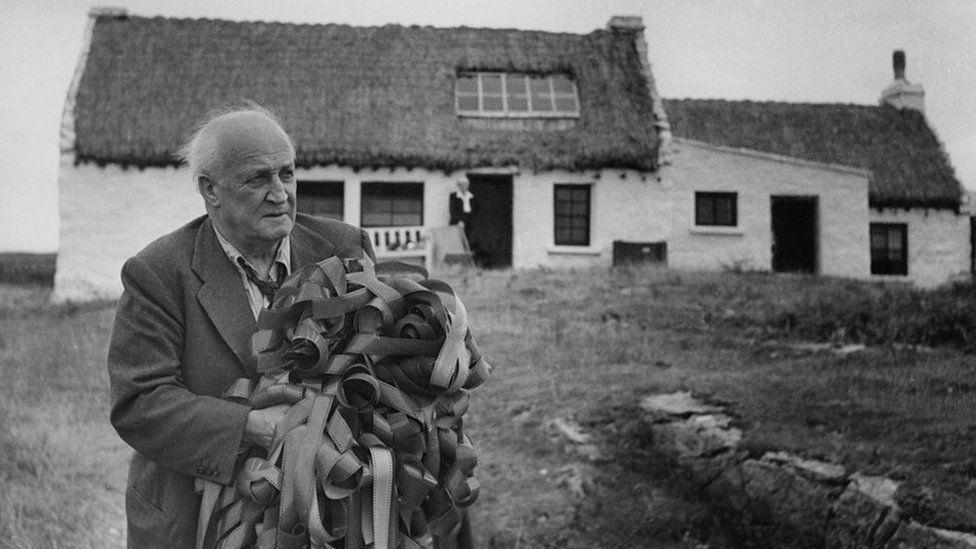
For many film buffs, An Cailín Ciúin acts as their entry-point to Irish language cinema, but the category has existed from as far back as 1935 with Robert J Flaherty's Oidhche Sheanchais (A Night of Storytelling).
Produced alongside his more famous docufiction, Man of Aran, the short film opened in a small number of cinemas in Dublin and Cork on St Patrick's Day.
At 11 minutes long, the film consists of four islanders sharing folklore around a hearth.
Critics loved it, audiences not so much and the film was quickly withdrawn from general release with all original copies presumed destroyed in a 1943 fire.
It wasn't until 2012 that a copy of the "talkie" mysteriously found itself re-catalogued at Harvard University's Houghton Library after being discovered in a filing cabinet.
A nitrate print of the film had been purchased by the university in 1935 at the request of their Department of Celtic Languages and Literatures.
A restored 35mm version premiered in 2015 before receiving its first television broadcast on TG4 in November 2016.
Irish Gaelic later made its Hollywood debut in 1952's The Quiet Man with Dubliner Maureen O'Hara, arguably Ireland's first leading lady, introducing the language to silver screens stateside.
O'Hara treated audiences to further, fleeting moments as Gaeilge with 1955's The Long Gray Line.
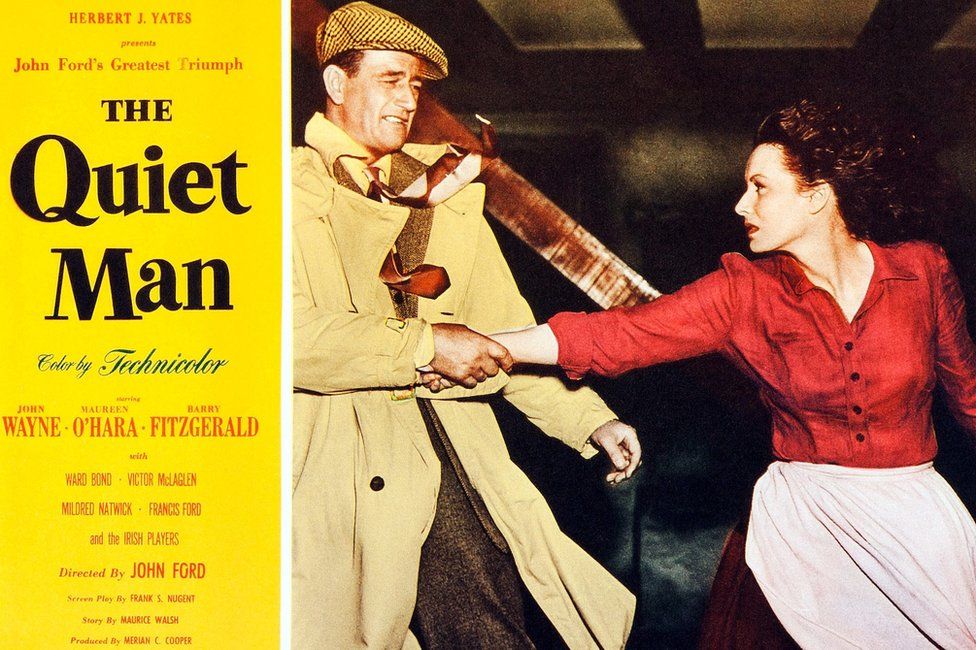
Over the years the language has crept into dozens of productions. Never before has there been as much support for Irish film, but some are calling for more.
Delivered as part of Northern Ireland's New Decade, New Approach agreement, additional funding to the Ulster Scots and Irish Language Broadcast Funds have helped develop numerous film productions.
A "one-off uplift" was provided by the UK's Department for Digital, Culture, Media and Sport in 2021/21, however Northern Ireland Screen's business plan for 2022/23 said the uplift in funding was "not to be sustained" in future years.
"A one-year increase in production funding is challenging to manage as it increases demand for the funding from the production companies which cannot be met in future years," it said.
"The reduction in funding from DCMS will impact the number of projects that can be supported and the number of training places and skills development that can be supported in 2022-23."
Chief executive of NI Screen Richard Williams recently told BBC's Good Morning Ulster he was "very disappointed" by the decision.
Aine Walsh, head of the Irish Language Broadcast Fund, said while they were aware this "hugely appreciated" uplift was intended as a one-off payment, it remained oversubscribed.
"We've always recognised how accessible the Irish language is," she added.
"We're intending to galvanise the local drama sector, strengthening those partnerships [with Irish republic broadcasters] and keep growing."
https://ift.tt/7BEajuZ
Film
Bagikan Berita Ini














0 Response to "An Cailín Ciúin: 'A breakthrough moment' for Irish language films - BBC"
Post a Comment